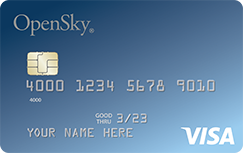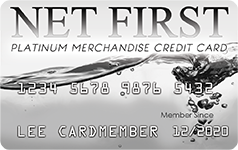It’s Never Too Late to Start!
Building your credit from scratch presents a chicken-and-egg problem. It can be hard to build your credit history if no one will give you credit and it’s hard to get credit without a credit history. We suggest 7 different ways you can break this cycle and start building your credit.
In this post...
1. Become an authorized user on a family member’s card
If your parent or significant other already has good credit, you can ask to be authorized as a user on one of their cards. This means that you can use the card, but are not legally obligated to pay it off. Before going this route, you and the account holder should have an agreement about how much you can use the card and how much you are responsible for paying it off.
2. Ask Someone to Co-sign a loan with you
Similarly, if a family member or significant other has good credit and is willing to co-sign a loan with you, you can start building good credit by taking out a loan together and paying down that loan. If you go this route, it is important for the co-signer to understand that he/she is fully responsible for the debt if you fail to pay it off.
3. Open a Secured Credit Card
Without a FICO score, it would be hard to get approved for a credit card. If you have enough cash, however, you can apply for a secured credit card backed by a cash deposit. A secured credit card is used like any other credit card, but if you don’t pay your balance the bank can recover the balance from your cash deposit.
In addition to requiring a cash deposit from you — usually equivalent to the amount of your credit limit — the bank may also charge you an annual fee. When applying for a secured credit card, look for a low annual fee and a card that reports to the three main credit bureaus (Equifax, Experian, and TransUnion).
Once you have established a good history of paying off your secured credit card you can cancel your secured card, your cash deposit will be refunded, and you can apply for an unsecured credit card that may better suit your needs.
Check out the latest secured credit card offers right here.
4. Apply for a Credit-Builder Loan
The purpose of a credit-builder loan is to help you build credit by loaning you an amount of money that is usually held by the lender and released to you only when you have paid off that loan. The benefit to this arrangement is that your timely payments are reported to credit bureaus and at the end of the term you have saved up a nice sum of money and built up your credit. Credit unions, community banks, and online lenders may offer credit-builder loans.
5. Report Your Rent
You can get credit for the rent you pay by reporting it to the credit bureaus or asking a rent-reporting service to do so (sometimes for free, and sometimes for a fee). Most lenders don’t use the scores that consider rent payments, but all three of the major credit bureaus do include rental payments in credit reports so that interested lenders can use that information — generally lenders that offer credit cards for students or those with bad credit, so if that’s you, then make this a priority.
6. Open A Store Card
Many department and big-box retail stores have lower thresholds for issuing a credit card than do bank cards. If you shop in a store frequently and can pay off your balance every month, a store card can be a good way to start building your credit, but beware of high fees and interest rates. [For more information about store cards read Pitfalls of Using a Store Credit Card.
7. Use Your First Credit Card Responsibly
Once you have built your credit sufficiently to qualify for a credit card, only use the card up to 30% of your allowed balance and be sure to pay your bill on time. As your credit score rises, you can apply for additional credit cards that best suit your spending habits.
Chase Sapphire Preferred® Card
With a 60,000 point new cardmember bonus when you spend $4,000 in the first 3 months of having the card, plus 2x points on travel and at U.S. restaurants — all for a $95 annual fee — this card is one of the top rewards card values available. Chase points are transferable to 9 airlines and 4 hotels, giving you the option of booking directly via these loyalty programs for some massively lucrative award redemptions in first & business class or at 5-star luxury hotels & resorts.
















